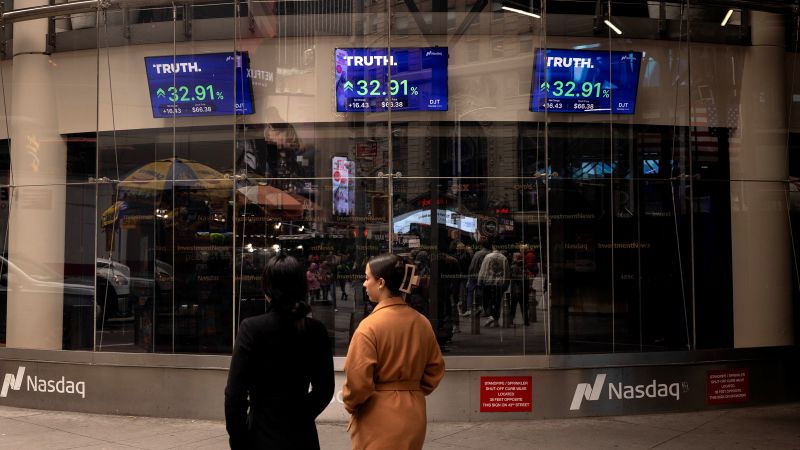Donald Trump’s newly public company, trading on Nasdaq under the ticker “DJT,” has the former president as its dominant shareholder. Despite being unprofitable, this social media platform could potentially make Trump billions, although restrictions prevent him from cashing out immediately. The company’s lack of revenue and ongoing losses should be a warning sign to investors, especially considering its small user base and declining numbers.
The fundamentals of Trump’s company, including just $3.4 million in revenue and $49 million in losses over the first nine months of 2023, raise concerns about its long-term viability. Additionally, the main asset, Truth Social, has fewer than 500,000 monthly active users and is losing users at a faster rate than larger platforms like Facebook and TikTok. The company’s lackluster performance is highlighted by a comparison to Reddit’s IPO, which had significantly higher revenue despite a lower valuation.
There are cautionary tales about Trump’s history with taking companies public, notably with his casino company going bankrupt and being delisted after being traded on the New York Stock Exchange. Despite potential investor skepticism, Trump Media & Technology Group is drawing comparison to meme stocks like GameStop and AMC, fueling speculation of a bubble forming around the company. The support of Trump’s followers could inflate the stock price, but his dissociation could also lead to a significant drop in value.
The top institutional investor in Trump’s company is Susquehanna International Group, led by a major Republican donor and investor, Jeff Yass. Concerns have been raised about the potential influence of foreign wealth funds on DJT stock and its impact on Trump’s wealth, which is now tied to the company. Ethical issues related to conflicts of interest may arise if Trump were to win the White House again and his company remains public, as investor relationships can have lasting effects.
Legal restrictions on investments for executive branch employees, excluding the president, limit potential conflicts of interest. Trump’s decision to involve his sons in managing the Trump Organization during his presidency raised ethical concerns, especially with the increased volume of money involved in a publicly traded company. Trump’s belief that presidents are exempt from ethics laws has been challenged by experts, who stress the potential for him to benefit from his company’s stock price through his actions as president.
The unusual situation of a former president’s name being attached to a publicly traded company raises unique ethical challenges, as seen with Trump’s previous conflicts related to his DC hotel during his presidency. While laws may not have anticipated this situation, the risks of conflicts of interest and potential benefits for Trump remain significant. By making his wealth synonymous with his name and inviting investors, Trump navigates a complex and ethically challenging financial landscape.


